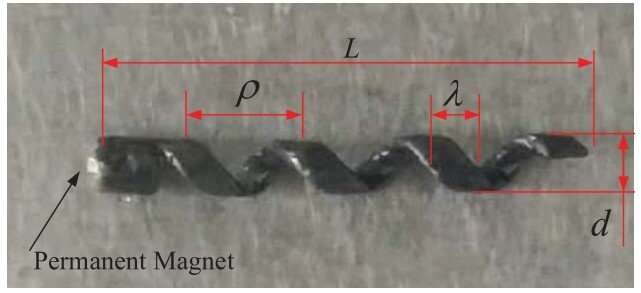Miniature magnetic helical microrobot. Credit: SIAT
The use of magnetic microrobots with miniature size and the ability of swimming in liquids with low Reynolds numbers is promising in targeted therapy, since these robots can move in narrow environments flexibly.
However, due to the impacts of the nonlinearity and diversity of the desired complex trajectories, it is a challenge to guarantee the microrobot tracking accuracy without frequent controller adjustment.
Recently, a research team led by Xu Sheng and Xu Tiantian from the Shenzhen Institute of Advanced Technology of the Chinese Academy of Sciences has developed a new method based on broad learning system (BLS), which can realize accurate and flexible trajectory tracking of microrobot.
The study was published in IEEE Transactions on Cybernetics on Nov. 1.
Compared with the traditional deep learning method, BLS—which features a flexible and simple structure—could achieve satisfactory accuracy.
The research team developed a learning-based microrobot servo control algorithm using BLS, and combined the Lyapunov theory with the complex learning method to derive the controller parameters' constraints.
They also developed a BLS-based controller training algorithm that uses multiple desired tracking trajectories as demonstrations, and obtained the controller parameters by the training algorithm.
According to the simulation and experimental results, this BLS-based method had a fast training speed, taking only about 6 seconds.
The trained BLS-based controller can track the trajectories with different shapes and velocities with better accuracy, and it needs no parameter re-adjustment due to its strong ability of generalization. Furthermore, since the BLS method is applied, the number of nodes can be flexibly adjusted when new demonstrations are required.
More information: Sheng Xu et al, A Learning-Based Stable Servo Control Strategy Using Broad Learning System Applied for Microrobotic Control, IEEE Transactions on Cybernetics (2021). DOI: 10.1109/TCYB.2021.3121080
Provided by Chinese Academy of Sciences























